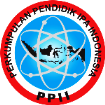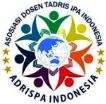How to Integrate ESD (Education for Sustainable Development) into STEM Education?: A Systematic Literature Review
Abstract
education to equip individuals with the knowledge, skills, abilities, and values necessary for personal development and societal contribution. This gave rise to the concept of education for sustainable development (ESD). Within this framework, STEM (science, technology, engineering, and mathematics) education is vital for preparing the younger generation to tackle societal challenges. Integrating ESD principles into STEM education is thus an effective approach to promote a sustainable future. This study aims to review existing empirical research on the implementation of STEM-ESD to explore various strategies for STEM-ESD learning. The PRISMA 2020 systematic literature review method was used, with Scopus as the primary database. Out of 160 collected articles, 20 met the criteria for thematic-qualitative analysis. This study finds that the strategies to integrate ESD into STEM education are: 1) Incorporating concepts of SDGs into STEM lessons, 2) Promoting hands-on activities and projects, 3) Designing real-world problems to apply STEM in addressing sustainability challenges, 4) Fostering partnerships with local communities, organizations, and industry stakeholders, and 5) Providing training and resources for educators to enhance their understanding of STEM-ESD teaching.
Keywords: STEM education, Education for Sustainable Development, STEM-ESD, systematic literature review
Full Text:
PDFReferences
Abdullah, N.H.L.; Hamid, H.; Shafii, H.; Wee, S.T.; Ahmad, J. Pupils perception towards the implementation of environmental education across curriculum in Malaysia primary school. In Journal of Physics: Conference Series; IOP Publishing: Bristol, UK, 2018; p. 012098.
Abdurrahman, A., Maulina, H., Nurulsari, N., Sukamto, I., Umam, A. N., & Mulyana, K. M. (2023). Impacts of integrating engineering design process into STEM makerspace on renewable energy unit to foster students’ system thinking skills. Heliyon, 9(4), e15100. https://doi.org/10.1016/j.heliyon.2023.e15100
AlAli, R., Alsoud, K., & Athamneh, F. (2023). Towards a Sustainable Future: Evaluating the Ability of STEM-Based Teaching in Achieving Sustainable Development Goals in Learning. In Sustainability (Switzerland) (Vol. 15, Issue 16). https://doi.org/10.3390/su151612542
Apedoe, X.S.; Reynolds, B.; Ellefson, M.R.; Schunn, C.D. Bringing Engineering Design into High School Science Classrooms: The Heating/Cooling Unit. J. Sci. Educ. Technol. 2008, 17, 454–465.
Baran, M.; Maskan, A. The effect of project-based learning on pre-service physics teachers’ electrostatic achievements. Cypriot J. Educ. Sci. 2010, 5, 243–257.
Batchelder, M., Swinney, M., O’Hara, T., Goddard, A., Lewis, E., Cox, J., & Fowler, H. J. (2023). Experiences from a School–University Partnership Climate and Sustainability Education Project in England: The Value of Citizen Science and Practical STEM Approaches. Sustainability (Switzerland), 15(12). https://doi.org/10.3390/su15129401
Bellanca, J.A. 21st Century Skills: Rethinking How Students Learn; Solution Tree: Bloomington, IN, USA, 2010.
Bennett, J.; Holman, J. Chemical Education: Towards Research-Based Practice: Context-Based Approaches to the Teaching of Chemistry: What Are They and What Are Their Effects; Gilbert, J.K., de Jong, O., Justi, R., Treagust, D.F., van Driel, J.H., Eds.; Springer: Dordrecht, The Netherlands, 2003.
Brundiers, K.; Wiek, K.; Redman, C.L. Real-world learning opportunities in sustainability: From classroom into the real world. Int. J. Sustain. High. Educ. 2010, 11, 308–324.
Burbules, N.C.; Fan, G.; Repp, P. Five Trends of Education and Technology in a Sustainable Future. Geogr. Sustain. 2020, 1, 93–97.
Burmeister, M.; Eilks, I. An understanding of sustainability and education for sustainable development among German student teachers and trainee teachers of chemistry. Sci. Educ. Int. 2013, 24, 167–194.
Campbell, C., & Speldewinde, C. (2022). Early Childhood STEM Education for Sustainable Development. Sustainability (Switzerland), 14(6). https://doi.org/10.3390/su14063524
Capraro, R.M.; Capraro, M.M.; Morgan, J. STEM Project—Based Learning: An Integrated Science, Technology, Engineering, and Mathematics (STEM) Approach; Sense: Rotterdam, The Netherlands, 2013.
Chan, B.; Choy, G.; Lee, A. Harmony as the basis for education for sustainable development: A case example of Yew Chung International Schools. Int. J. Early Child. 2009, 41, 35–48.
Costa, M. C., Ferreira, C. A. F., & Pinho, H. J. O. (2023). Physics of Sound to Raise Awareness for Sustainable Development Goals in the Context of STEM Hands-On Activities. Sustainability (Switzerland), 15(4). https://doi.org/10.3390/su15043676
Dannenberg, S.; Grapentin, T. Education for sustainable development—Learning for transformation. The example of Germany. J. Fut. Stud. 2016, 20, 7–20.
Décamps, A., Allal-Chérif, O., & Gombault, A. (2021). Fostering knowledge of the sustainable development goals in universities: The case of sulitest. Sustainability (Switzerland), 13(23), 1–17. https://doi.org/10.3390/su132313215
Del Cerro Velázquez, F., & Rivas, F. L. (2020). Education for sustainable development in STEM (technical drawing): Learning approach and method for SDG 11 in classrooms. Sustainability (Switzerland), 12(7). https://doi.org/10.3390/su12072706
Dotson, M.E.; Alvarez, V.; Tackett, M.; Asturias, G.; Leon, I.; Ramanujam, N. Design thinking-based stem learning: Preliminary results on achieving scale and sustainability through the IGNITE model. Front. Educ. 2020, 5, 14.
Dunlap, R.E.; Mertig, A.G. Global Concern for the Environment: Is Affluence a Prerequisite? J. Soc. Issues 1995, 51, 121–137.
Dunlap, R.E.; Van Liere, K.D. The New Environmental Paradigm. J. Environ. Educ. 2008, 40, 19–28.
Evans, D., & Pearson, A. (2001). Systematic reviews of qualitative research. Clinical Effectiveness in Nursing, 5(3), 111–119. https://doi.org/10.1054/cein.2001.0219
Fakhrudin, I. A., Wicaksana, E. J., Nastiti, A. R., Saljadziba, E., & Indriyanti, N. Y. (2021). Pre-Service Teachers’ Perspectives: STEM as a Solution to Promote Education for Sustainable Development. Journal of Physics: Conference Series, 1842(1). https://doi.org/10.1088/1742-6596/1842/1/012082
Fortus, D.; Dershimer, R.C.; Krajcik, J.S.; Marx, R.W.; Mamlok-Naaman, R. Design-based science and student learning. J. Res. Sci. Teach. 2004, 41, 1081–1110.
Gamage, K. A. A., Ekanayake, S. Y., & Dehideniya, S. C. P. (2022). Embedding Sustainability in Learning and Teaching: Lessons Learned and Moving Forward-Approaches in STEM Higher Education Programmes. Education Sciences, 12(3). https://doi.org/10.3390/educsci12030225
Gavari-Starkie, E., Espinosa-Gutiérrez, P. T., & Lucini-Baquero, C. (2022). Sustainability through STEM and STEAM Education Creating Links with the Land for the Improvement of the Rural World. Land, 11(10). https://doi.org/10.3390/land11101869
George, J.M.; Lubben, F. Facilitating teachers’ professional growth through their involvement in creating context-based materials in science. Int. J. Educ. Dev. 2002, 22, 659–672.
Gutwill-Wise, J.P. The Impact of Active and Context-Based Learning in Introductory Chemistry Courses: An Early Evaluation of the Modular Approach. J. Chem. Educ. 2001, 78.
Heiskanen, E.; Thidell, Å.; Rodhe, H. Educating sustainability change agents: The importance of practical skills and experience. J. Clean. Prod. 2016, 123, 218–226.
Holmens, A.F.; Webb, K.J.; Albritton, B.R. Connecting students to community: Engaging students through course embedded service-learning activities. Int. J. Manag. Educ. 2022, 20, 100610.
Khadri, H. O. (2022). Becoming future-proof STEM teachers for enhancing sustainable development: A proposed general framework for capacity-building programs in future studies. Prospects, 52(3–4), 421–435. https://doi.org/10.1007/s11125-021-09588-0
King, D.; Henderson, S. Context-based learning in the middle years: Achieving resonance between the real-world field and environmental science concepts. Int. J. Sci. Educ. 2018, 40, 1221–1238.
Lai, W.-H.; Lin, C.-C.; Wang, T.-C. Exploring the interoperability of innovation capability and corporate sustainability. J. Bus. Res. 2015, 68, 867–871.
Leicht, A.; Heiss, J.; Byun, W.J. Issues and Trends in Education for Sustainable Development; UNESCO Publishing: Paris, France, 2018; Volume 5.
Lubben, F.; Campbell, B.; Dlamini, B. Contextualizing science teaching in Swaziland: Some student reactions. Int. J. Sci. Educ. 1996, 18, 311–320.
Martín-Sánchez, A., González-Gómez, D., & Jeong, J. S. (2022). Service Learning as an Education for Sustainable Development (ESD) Teaching Strategy: Design, Implementation, and Evaluation in a STEM University Course. Sustainability (Switzerland), 14(12). https://doi.org/10.3390/su14126965
Moon, H.; Mariadoss, B.J.; Johnson, J.L. Collaboration with higher education institutions for successful firm innovation. J. Bus. Res. 2019, 99, 534–541.
Nguyen, T. P. L. (2023). Integrating circular economy into STEM education: A promising pathway toward circular citizenship development. Frontiers in Education, 8(March), 1–9. https://doi.org/10.3389/feduc.2023.1063755
Nguyen, T. P. L., Nguyen, T. H., & Tran, T. K. (2020). STEM education in secondary schools: Teachers’ perspective towards sustainable development. Sustainability (Switzerland), 12(21), 1–16. https://doi.org/10.3390/su12218865
Otto, S.; Pensini, P. Nature-based environmental education of children: Environmental knowledge and connectedness to nature, together, are related to ecological behaviour. Glob. Environ. Chang. 2017, 47, 88–94.
Page, M. J., McKenzie, J. E., Bossuyt, P. M., Boutron, I., Hoffmann, T. C., Mulrow, C. D., Shamseer, L., Tetzlaff, J. M., Akl, E. A., Brennan, S. E., Chou, R., Glanville, J., Grimshaw, J. M., Hróbjartsson, A., Lalu, M. M., Li, T., Loder, E. W., Mayo-Wilson, E., McDonald, S., … Moher, D. (2021). The PRISMA 2020 statement: an updated guideline for reporting systematic reviews. Systematic Reviews, 10(1), 89. https://doi.org/10.1186/s13643-021-01626-4
Pahnke, J.; O’Donnell, C.; Bascopé, M. 2019. Using Scienceto Do Social Good: STEM Education for Sustainable Development. Position Paper Developed in Preparation for the Second “International Dialogueon STEM Education” (IDoS) in Berlin. Available online: https://www.haus-der-kleinen-forscher.de (accessed on 9 May 2024).
Pahnke, J.; O’Donnell, C.; Bascope, M. Using Science to Do Social Good: STEM Education for Sustainable Development. Position Paper Developed in Preparation for the Second “International Dialogue on STEM Education” (IDoS); Haus der Kleinen Forscher: Berlin, Germany, 2019.
Pahnke, J.; O’Donnell, C.; Bascopé, M. Using Science to Do Social Good: STEM Education for Sustainable Development. In Proceedings of the Second International Dialogue on STEM Education (IDoS), Berlin, Germany, 5–6 December 2019.
Pedretti, E.; Hodson, D. From rhetoric to action: Implementing sts education through action research. J. Res. Sci. Teach. 1995, 32, 463–485.
Potter, G. Environmental Education for the 21st Century: Where Do We Go Now? J. Environ. Educ. 2009, 41, 22–33.
Redman, E. Advancing educational pedagogy for sustainability: Developing and implementing programs to transform behaviors. Int. J. Environ. Sci. Educ. 2013, 8, 1–34.
Remington-Doucette, S.M.; Hiller Connell, K.Y.; Armstrong, C.M.; Musgrove, S.L. Assessing sustainability education in a transdisciplinary undergraduate course focused on real-world problem solving. Int. J. Sustain. High. Educ. 2013, 14, 404–433.
Rico, A., Agirre-Basurko, E., Ruiz-González, A., Palacios-Agundez, I., & Zuazagoitia, D. (2021). Integrating mathematics and science teaching in the context of education for sustainable development: Design and pilot implementation of a teaching-learning sequence about air quality with pre-service primary teachers. Sustainability (Switzerland), 13(8). https://doi.org/10.3390/su13084500
Rustaman, N. Y. (2021). System thinking as a sustainable competency in facilitating conceptual change through STEM based learning in biology. Journal of Physics: Conference Series, 1806(1). https://doi.org/10.1088/1742-6596/1806/1/012223
Stouthart, T., Bayram, D., & van der Veen, J. (2023). Capturing Pedagogical Design Capacity of STEM Teacher Candidates: Education for Sustainable Development through Socioscientific Issues. Sustainability (Switzerland), 15(14). https://doi.org/10.3390/su151411055
Suh, H., & Han, S. (2019). Promoting sustainability in university classrooms using a STEM project with mathematical modeling. Sustainability (Switzerland), 11(11). https://doi.org/10.3390/su11113080
Tanang, H.; Abu, B. Teacher professionalism and professional development practices in South Sulawesi, Indonesia. J. Curr. Teach. 2014, 3, 25–42.
Trilling, B.; Fadel, C. 21st Century Skills: Learning for Life in Our Times; John Wiley & Sons: San Francisco, CA, USA, 2009.
Ulmeanu, M. E., Doicin, C. V., & Spânu, P. (2021). Comparative evaluation of sustainable framework in stem intensive programs for secondary and tertiary education. Sustainability (Switzerland), 13(2), 1–33. https://doi.org/10.3390/su13020978
UNCED. Agenda 21; UNCED Press: Rio de Jeinero, Brazil, 1992; Available online: http://www.un.org/esa/dsd/agenda21/ (accessed on 10 May 2024).
Van Tulder, R.; Keen, N. Capturing Collaborative Challenges: Designing Complexity-Sensitive Theories of Change for Cross-Sector Partnership. J. Bus. Ethics 2018, 150, 315–332.
Van Tulder, R.; Seitanidi, M.M.; Crane, A.; Brammer, S. Enhancing the impact of cross-sector partnerships. J. Bus. Ethics 2016, 135, 1–17.
Vilmala, B. K., Kaniawati, I., Suhandi, A., & Permanasari, A. (2022). ESD Integrated STEM Education: What are the Perceptions of Prospective Science Teacher Students. AIP Conference Proceedings, 2468(February 2023), 8–14. https://doi.org/10.1063/5.0102492
Wahono, B., & Chang, C. Y. (2019). Assessing Teacher’s Attitude, Knowledge, and Application (AKA) on STEM: An Effort to Foster the Sustainable Development of STEM Education. Sustainability (Switzerland), 11(4). https://doi.org/10.3390/su11040950
Wals, A.E.J.; Kieft, G. Education for Sustainable Development; SIDA: New York, NY, USA, 2003.
DOI: http://dx.doi.org/10.24014/jnsi.v6i2.29913
Refbacks
- There are currently no refbacks.

Journal of Natural Science and Integration
E-ISSN: 2620-5092 P-ISSN: 2620-4967
Published By:
Department of Science Education, Faculty of Education and Teacher Training,
State Islamic University of Sultan Syarif Kasim Riau, Indonesia
Mailing Address:
Jl. H.R Soebrantas Km. 15 No. 155
Kelurahan Simpang Baru
Kecamatan Tuah Madani, Pekanbaru, Riau, Indonesia
Email: jnsi.tadrisipa@uin-suska.ac.id
Indexed By:
Journal of Natural Science and Integration is licensed under a Creative Commons Attribution 4.0 International License.


_-_Copyy2.png)






.jpg)
.png)
.jpg)
.jpg)




